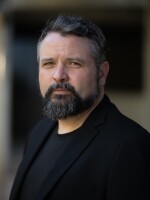Big changes are coming to the United States' relationship with the island nation of Cuba. Just 90 miles from Florida, the two countries have been locked in a cold war strategy of cold shoulders for 55 years. Today President Obama announcedthe two nations would again establish regular diplomatic relations, exchanging ambassadors and having embassies in their respective capitals.
The President said the policies of the past had failed to accomplish their goals and that it was time to go another way. As with the policies directed at Vietnam and China, normalization is hopes to equate economic power with diplomatic power, transforming the country with increased relations.
The 1959 overthrow of Cuban President, Fulgecnio Batista by Fidel Castro-led rebels marked the beginning of an escalation in hostility and exclusionary policies between the two nations.
The policy change would would add to the trend of opening relations that has become normal the past three presidents. The two countries already allow limited travel between their citizens, have hundreds of millions of dollars in trade, and remittances from Cubans living in the U.S. But the liberalizing of relations hasn't been popular in all corners.
Texas Senator Ted Cruz, and Florida Senator Marco Rubio lambasted the plan. Both Senators are children of Cuban immigrants. Rubio in particular accusedPresident Obama of giving away the store.
"This president is the single worst negotiator in my lifetime. Who has basically given the Cuban government everything it asked for and received no assurances for democracy and freedom in return," said Sen. Rubio at a press conference immediately following the President's.
Rubio indicated he would thwart any efforts to fund an embassy in
What is the reaction here in San Antonio and across the country to these announcements?
Guests:
- Katsuo Nishikawa, professor Latin American politics at Trinity University
- Jeffrey Engel, director of the Center for Presidential History at Southern Methodist University



